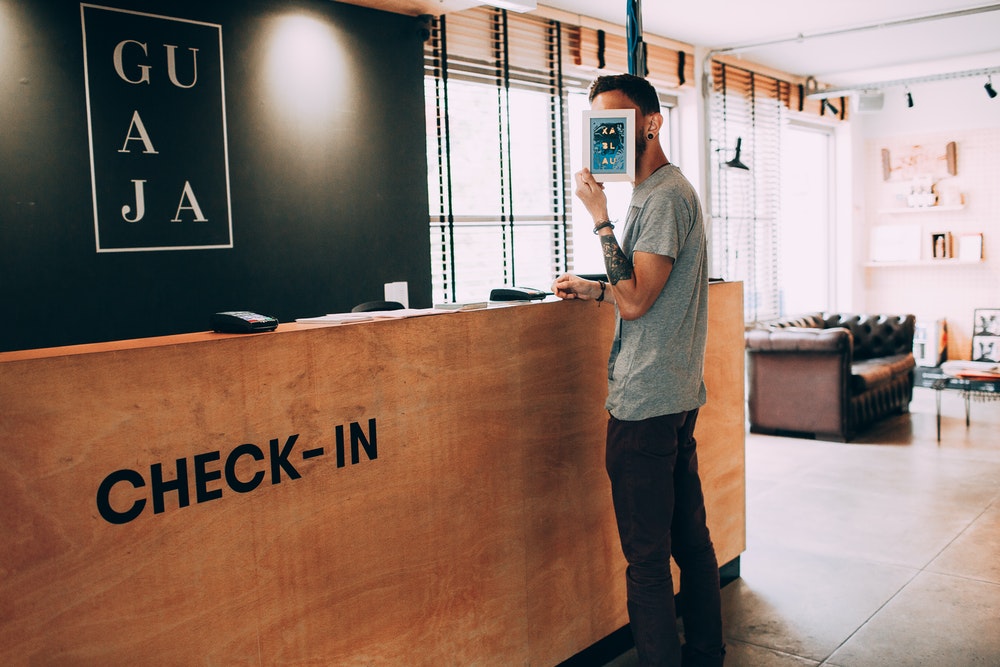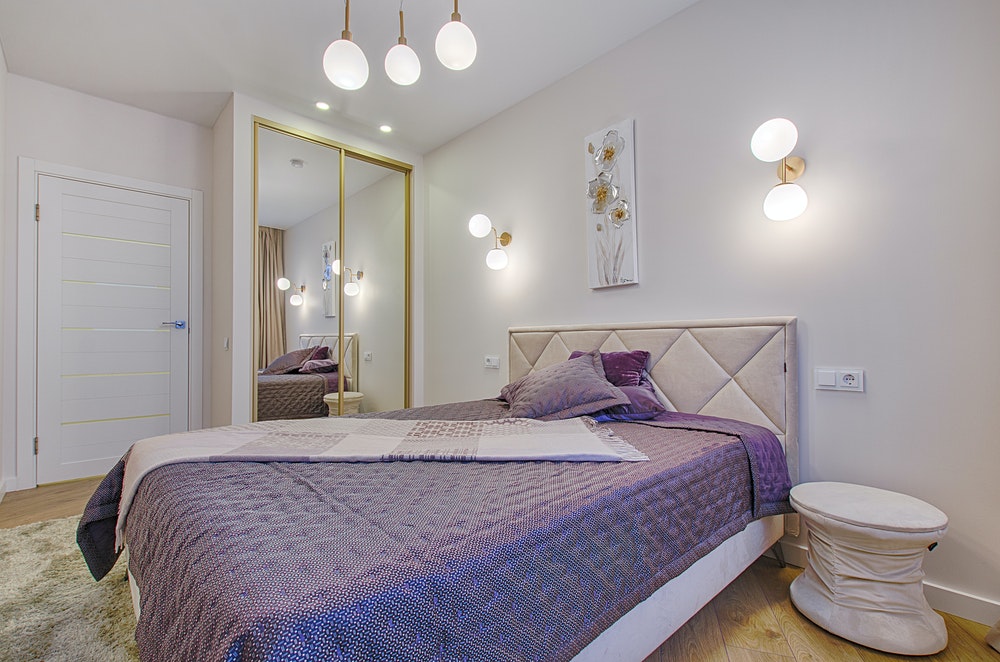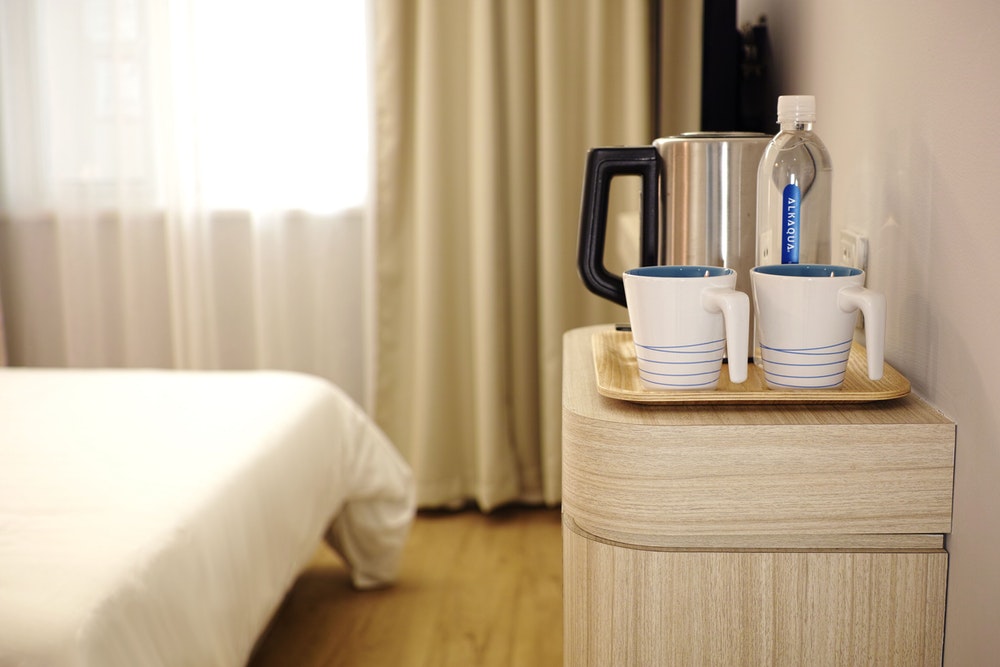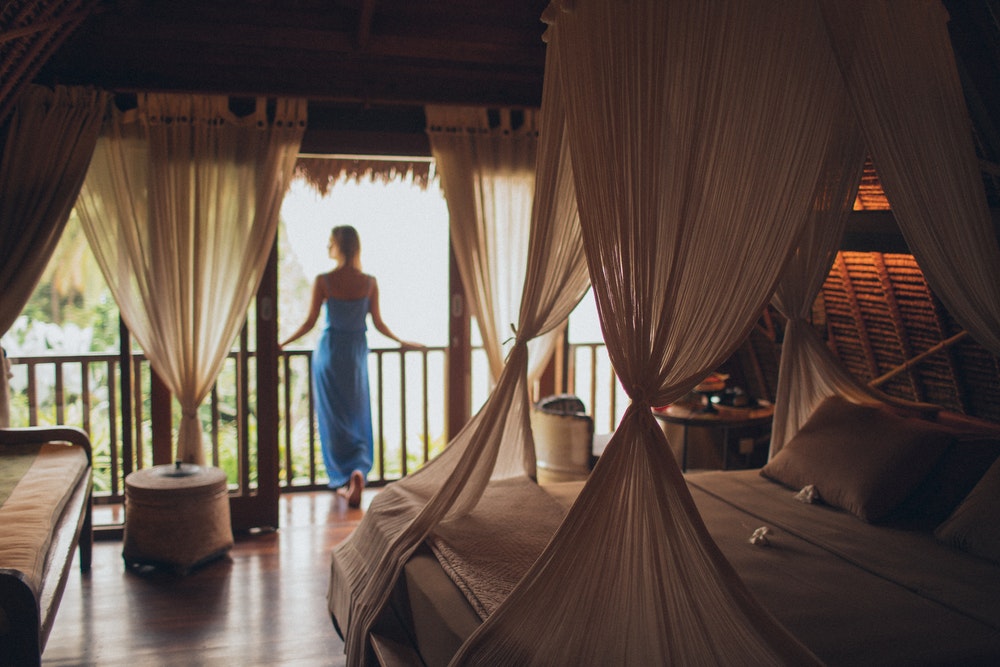10 tips for staying in a hotel during the pandemic
COVID-19 has affected our lives more than we would want it to.
Even though it’s been here only a few months, it has already changed our habits. And continues doing so. While we don’t know when it will be completely safe to socialise and travel again, what we do know is that it’s gonna be more difficult. At least for a while.So, if you’re travelling now, or planning to do so, here are the things to take into account.
To make your stay in a hotel during the pandemic as safe as possible.
Take care and stay safe!

Tips for staying in a hotel during the pandemic
1. Wear a mask and wash your hands
Wear a mask to protect yourself and others.
Wearing a face mask, combined with other preventive measures such as frequent handwashing and social distancing, can help slow the spread of the coronavirus. As simple as that.
Even if you aren’t feeling sick, a mask is still recommend in many situations.
Wear it in public spaces abroad, including hotels.
According to virologists, most of coronavirus transmitters are asymptomatic. This means that you don’t feel sick, yet you are carrying the virus and transmitting it to others. And you can transmit the virus to others when you talk, sneeze, cough, sing or shout.
That’s where a face mask comes into play.
Masks reduce the number of respiratory droplets a person releases into the air. More people wear masks, more respiratory droplets are contained. Less chance of you and others being exposed to COVID-19.
Follow WHO's guidance and advice on the use of masks.
2. Keep your physical distance and practice social distancing
Keep your distance and practice social distancing.
Even if you wear a mask.
This way you’ll help to slow the spread of the coronavirus.
Stay at least some 2 meters apart from other people, limit in-person meetings, and definitely stay inside if you are not feeling well. In the latter case, it’s also recommended to self-isolate after coming home from the trip. Even if you think that you haven't been around someone who is sick or tested positive.

3. Bring hand sanitiser and disinfectant
Hotels all around the world have adopted new cleaning policies.
Most probably the hotel staff have cleaned the surfaces already. But if you stay in a budget hotel or guesthouse, it’s better to take matters into your hands. You never know how serious the staff there is about cleanliness, especially of you are travelling to developing countries.
Disinfect high-touch areas such as remotes, phone, door handles, toilet flush buttons, taps, etc.
We also recommend you to open your windows for ventilation right after arrival.
As there is a risk of airborne transmission in indoor spaces.
Wash your hands frequently, especially after being in a public place, handling money, or after blowing your nose, coughing or sneezing. If it’s not possible, use hand sanitiser. If you are travelling during the pandemic, hand sanitiser is a must.
4. Pay attention to location of the hotel
Check the location of your preferred hotel.
The less you use public transport and taxi, the better. Public transport is among the most dangerous places you're most likely to catch COVID-19. That’s why we suggest you to book the accommodation close to the places you’ll be visiting.
If you are attending a conference, choose a hotel just a walking distance away.
Yes, you’ll need to get there from the airport or bus/ railway station, but still you’ll limit the use of taxis or public transport on daily basis.
If you are just travelling, choose a hotel in the city centre. Thus you’ll be close to most tourist attractions and facilities. However, you should note that in many countries travelling still is not recommended now due to high risk of getting the virus.

5. Ask for a room that has not been occupied for a few days
Coronavirus can live on some surfaces for up to 72 hours.
If there was a guest in the room right before you check in, there is a higher risk of you getting the coronavirus. Assuming that the guest before you had the virus.
The occupancy rate in most hotels now is down.
So, you can try and ask for a room that has not been occupied for a few days.
6. Decline housekeeping services
It’s one of the ways to reduce the risk of getting the virus.
By avoiding contact with humans as much as possible.
Including also housekeeping services.
Even though housekeeping team are instructed to wear gloves and disinfect their hands, you can’t vouch for every employee. You can’t be sure if they aren’t slacking, as often they are overworked and underpaid. Your health may be at stake if the staff aren’t being careful.
And often you don’t need your room to be cleaned anyway, if you stay just a couple of days.

7. Avoid using shared facilities
Thus avoiding close person-to-person contact.
This is how the virus spreads — through direct and close contact with infected people via mouth and nose secretions. People who are in close contact with an infected person can catch COVID-19 when those infectious secretions get into their mouth, nose or eyes.
To avoid contact with infectious droplets, stay some 2 meters apart from other people.
And better avoid shared facilities and public spaces altogether.
Another risk is the contaminated surfaces and objects. As already mentioned, COVID-19 can live on some surfaces for up to 72 hours. If you touch a contaminated object and later touch your face, mouth, nose or eyes with unwashed hands, you are potentially contaminating yourself with the virus you've picked up on your hands.
Even though the surfaces in common rooms and gyms are cleaned by staff, they are not cleaned after every customer. Hotel restaurants mostly are safe, as the surfaces there are cleaned more often — after every customer.
8. Order room service or opt for food delivery
And again, to avoid close person-to-person contact.
Places where large crowds gather are very unsafe during the pandemic.
Restaurants have taken measures to help prevent the spread of the coronavirus. Now there are less tables, which increase the gaps between the tables; hand sanitisers for customers and face shields for their staff. But still, it is advised to avoid public spaces when you travel. Just to be on the safe side.
Avoid the hotel’s restaurant and instead order room service.
If there’s no restaurant at the hotel, or if the prices are too high for you, opt for food delivery instead of going out to eat.

9. Choose a hotel wisely
How does the hotel protect hotel guests and staff?
Find out what is a hotel doing to mitigate risk of corona virus? Ask the hotel how does the hotel protect hotel guests and staff? Hotel chains have announced new cleaning policies and focusing on social-distancing and contact-free transactions.
Read the reviews and find out if the hotel staff is serious about cleanliness and social-distancing. Or, ask the hotel directly about the procedures for prevention of COVID-19.
Find out if the hotel has procedures for you to follow, if you catch the virus during your stay?
10. Consider staying in a private Airbnb
As already mentioned the key to staying healthy and keeping the virus at bay, is to avoid direct person-to-person contact. Thus staying in a private Airbnb in some situations could be a safer option than booking a hotel room.
Because of fewer people around you.
In some situations it might be only you, and no other guests.
If you have concerns about cleanliness of the room and the surfaces, contact the host to discuss this matter. And pack your own hand sanitiser and disinfectant.
Safe travels!
Remember - whenever your flight is delayed, cancelled or you've been denied boarding - you might be entitled to flight compensation. Contact us to get it sorted out right away!